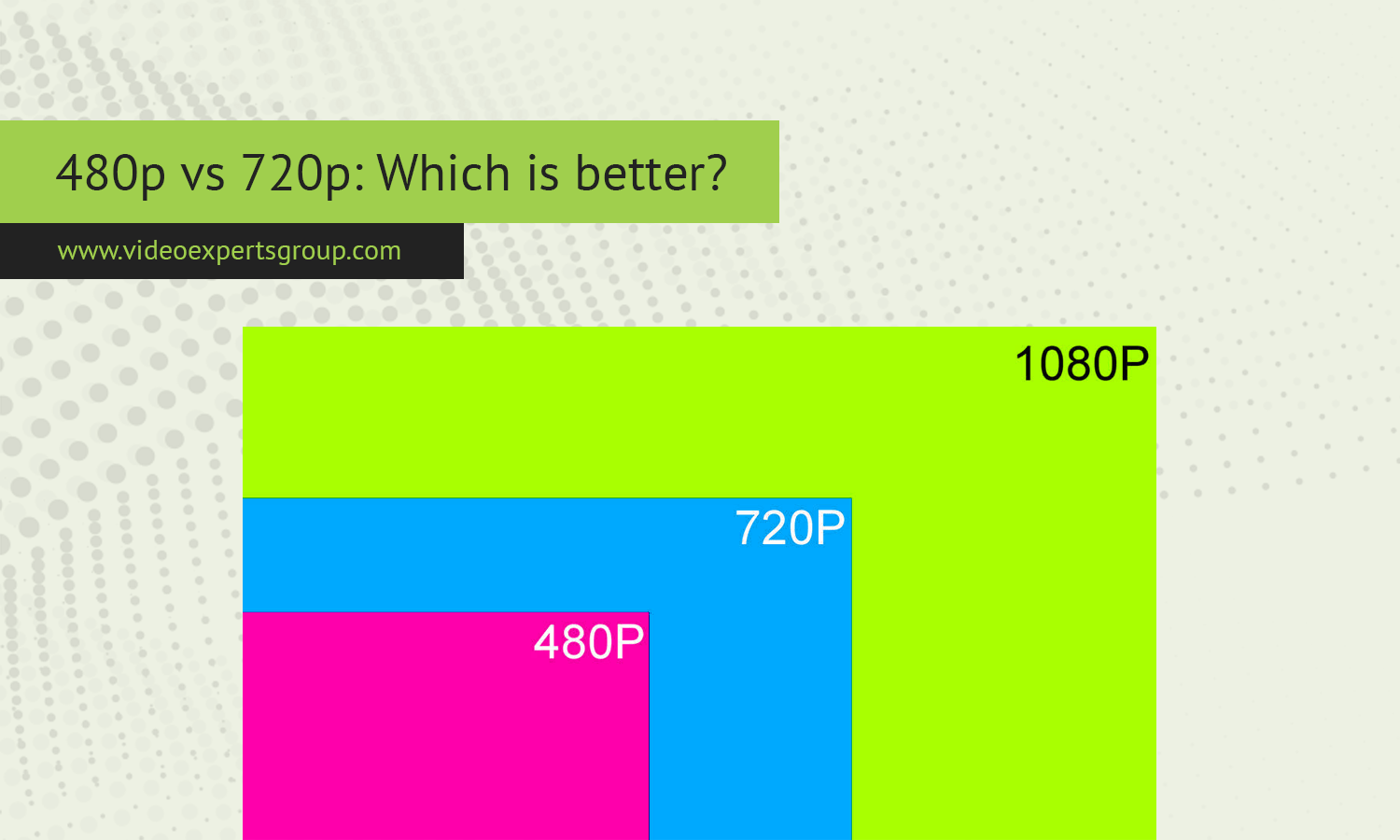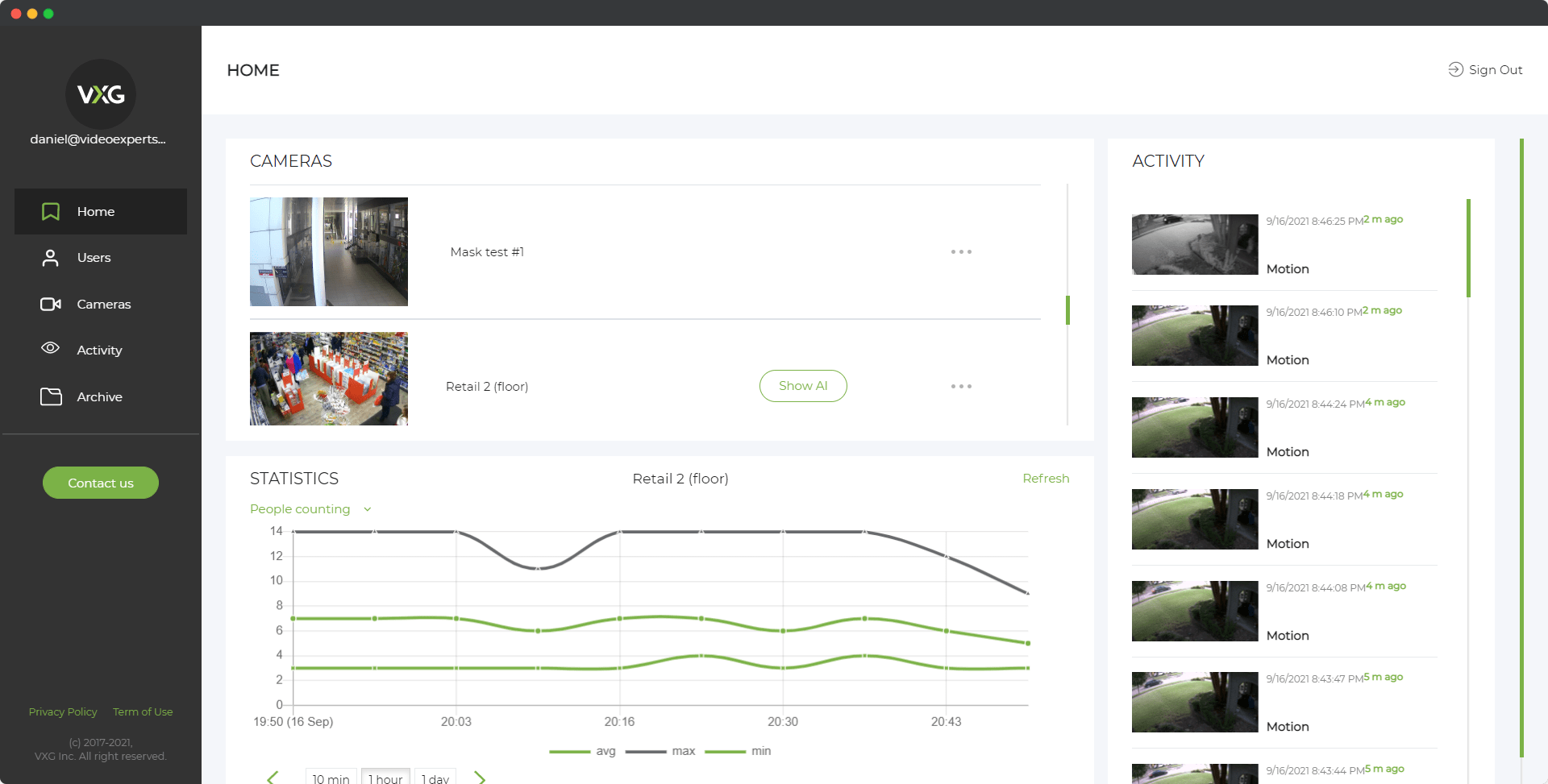Understanding the differences between these resolutions is crucial, especially when you’re deciding which is better for watching videos, streaming content, or playing games. In this article, we'll break down what 480p and 720p mean, explore their differences, and help you determine which is the better choice for your needs.
480p
Meaning
480p is a video resolution that stands for 480 pixels in height. The "p" in 480p stands for "progressive scan," which means the image is displayed sequentially from top to bottom in each frame. The typical resolution for 480p is 720x480 pixels, where 720 represents the number of horizontal pixels, and 480 represents the vertical pixels. This resolution is often referred to as Standard Definition (SD).
Uses
480p is commonly used in older television broadcasts, DVDs, and online streaming platforms, especially when low bandwidth or data savings are a priority. Because it requires less data, 480p is ideal for mobile devices with limited internet connections or for streaming content on smaller screens where higher resolutions might not be as noticeable. It's also a go-to choice for older devices or systems that can't handle higher resolutions.
720p
Meaning
720p is a higher video resolution that stands for 720 pixels in height. Like 480p, the "p" stands for progressive scan, which means each frame is drawn sequentially from top to bottom. The typical resolution for 720p is 1280x720 pixels, making it a High Definition (HD) format. This resolution offers a significant improvement in image clarity and detail compared to 480p.
Uses
720p is commonly used in HDTV broadcasts, video game consoles, Blu-ray discs, and online streaming platforms. It provides a sharper, clearer picture, making it ideal for viewing on larger screens or for content where detail is important, such as movies, sports, and gaming. Many online platforms like YouTube and Netflix offer 720p as an option for users who want better quality without the higher data consumption of 1080p or 4K.
What Is the Difference Between 480p and 720p?
The most obvious difference between 480p and 720p is the resolution, or the number of pixels displayed on the screen. 720p has 1280x720 pixels, which totals 921,600 pixels per frame, while 480p has 720x480 pixels, totaling 345,600 pixels per frame. This means 720p has more than twice the number of pixels as 480p, resulting in sharper and more detailed images.
Another key difference is the level of detail and clarity. With more pixels, 720p delivers better image quality, especially on larger screens. In contrast, 480p may appear blurry or pixelated when stretched to fit a larger display. This is particularly noticeable when watching fast-paced content like sports or action movies, where the extra detail in 720p can make a significant difference.
Finally, the data usage and file size differ between these two resolutions. Because 720p has more pixels, it requires more data to stream or store, leading to larger file sizes and higher internet bandwidth requirements. On the other hand, 480p consumes less data and is more suitable for situations where internet speed or data caps are a concern.
Which Is Better, 480p or 720p?
The answer to whether 480p or 720p is better depends on your specific needs and circumstances.
If you’re watching content on a small screen, like a smartphone, or if you’re dealing with limited data or slow internet speeds, 480p might be the better choice. The difference in quality between 480p and 720p is less noticeable on smaller screens, and the lower data consumption can help avoid buffering issues or excessive data usage.
However, if you’re viewing content on a larger screen, like a TV or computer monitor, 720p is usually the better option. The higher resolution offers clearer, sharper images, which enhances the viewing experience, especially for HD content like movies, sports, and games. The extra detail in 720p can make a significant difference in image quality, making it worth the additional data usage.
In summary, 720p is generally better for larger screens and higher-quality viewing experiences, while 480p is more suitable for smaller screens, lower bandwidth, or data-saving scenarios. Your choice between the two should consider your device, internet speed, and how much you prioritize image quality over data consumption.
















